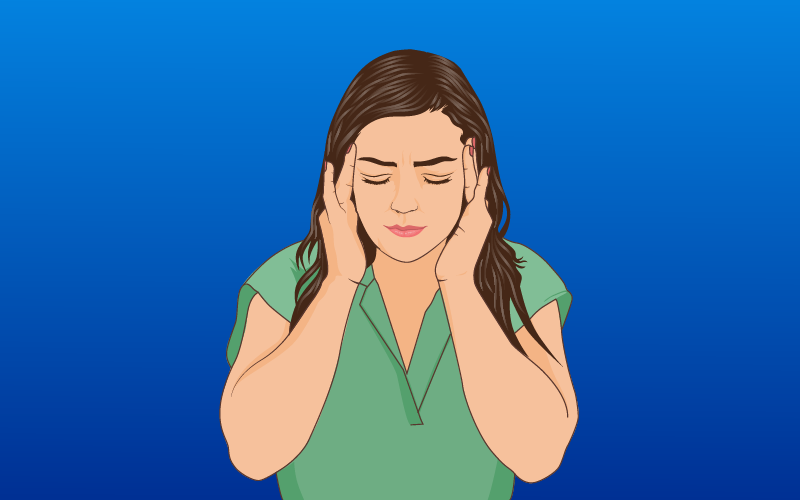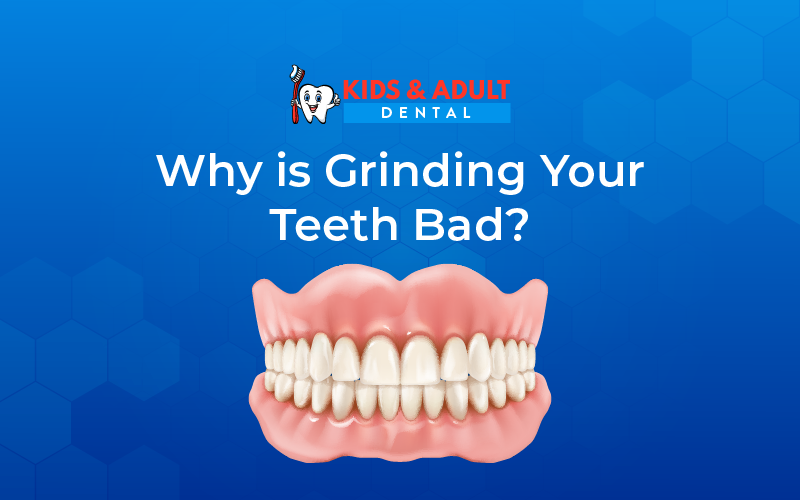Teeth grinding, also known as bruxism, is a condition in which people grind or clench their teeth unconsciously. This habit can occur during the day or at night while sleeping.
While occasional teeth grinding is not harmful, habitual teeth grinding can cause damage to the teeth and lead to other serious health problems.
Teeth grinding is often caused by stress and anxiety, but it can also be a result of certain medical conditions, such as sleep apnea, or due to certain medications.
Bruxism can be detected by your dentist during a routine dental exam. Signs of bruxism may include worn or broken teeth, sensitivity to hot and cold temperatures, and jaw pain.
The habit of teeth grinding is bad for several reasons. It can lead to dental problems, including tooth sensitivity, chipped or fractured teeth, and even tooth loss. Teeth grinding can also cause jaw pain, headaches, and earaches.
Additionally, chronic teeth grinding can cause temporomandibular joint (TMJ) disorders, which can result in difficulty opening and closing the jaw, and even affect speech.
One of the main reasons teeth grinding is harmful is because it can cause the enamel on your teeth to wear away.
Enamel is the protective outer layer of your teeth that helps prevent cavities and tooth decay. When enamel wears away, it exposes the dentin underneath, which can lead to tooth sensitivity and other dental problems.
Once the enamel is gone, it cannot be restored, so it is important to protect your teeth by avoiding teeth grinding.

Another reason teeth grinding is bad is that it can cause damage to your jaw joint. The temporomandibular joint (TMJ) connects your jawbone to your skull and allows you to open and close your mouth.
Chronic teeth grinding can cause TMJ disorders, which can lead to pain, difficulty opening and closing the mouth, and even affect speech.
If left untreated, TMJ disorders can become chronic and require more invasive treatments, such as surgery.
Teeth grinding can also cause headaches and earaches. When you grind your teeth, the muscles in your jaw and face become tense, which can cause pain and discomfort.
The tension can also radiate to other areas, such as the head and ears, leading to headaches and earaches.
In addition to the physical problems that teeth grinding can cause, it can also affect your mental health. Teeth grinding is often a result of stress and anxiety, which can lead to a vicious cycle.
The more you grind your teeth, the more you may feel anxious or stressed, which can cause even more teeth grinding.
This cycle can be difficult to break, but it is important to find ways to manage stress and anxiety to avoid further damage to your teeth and overall health.
Read Also: Invisalign Pain Ways to Wase Discomfort
If you think you may be grinding your teeth, it is important to get the denver family dentistry. Your dentist can examine your teeth and jaw to determine if there is any damage and can recommend treatment options to help you stop grinding your teeth.
Treatment options may include wearing a mouthguard at night to protect your teeth and jaw, practicing stress-reducing techniques, or even taking medication to relax your jaw muscles.
Conclusion
Grinding your teeth can cause serious damage to your dental and overall health. It is important to take steps to manage stress and anxiety and to seek treatment if you think you may be grinding your teeth.
By protecting your teeth and jaw, you can avoid the negative effects of teeth grinding and maintain a healthy smile for years to come.

